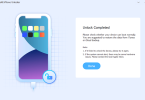How many of us leave our homes to pay utility bills, transfer money, book tickets, or order food these days? Hardly anyone; with easy access to the Internet and smartphone, we can do many works from the comfort of our homes. Mobile applications play a critical role in that. Almost every business these days needs a mobile app for their consumers of internal business operations. As a result, the demand for mobile apps has skyrocketed in recent years.
A Statista report shows that the number of mobile app downloads worldwide has increased from 140.68 billion in 2016 to 255 billion in 2022. However, only creating an application is not enough. The users want a fast, efficient, user-friendly, and engaging application. So, how to create an application that stands out from the rest? This blog enumerates the best practices for mobile app development.
So, let us get started!
Contents
7 Mobile App Development Best Practices for a Successful App
1. Conduct a thorough research
The success of your app depends a lot, on how well you research before starting the project. You need to consider many factors. The first thing is the purpose of building the app. The more clarity you have, the better your chances of making the app successful. This step includes your target audience. Understanding their behavior and needs will make it easier for you to build a user-friendly and efficient application.
The next thing to look for before mobile app development is if your competitor has a similar app and if they have, research its look and features and the scope of improvements. Conducting research will help you build an application that benefits the users. If you do not research, you can waste a lot of time and money in building the app, and nobody may use it.
2. An appealing UI/UX design
The design of a mobile app plays a significant role in the user experience. A compelling user experience goes beyond the aesthetics of the app, but it includes layout, navigation, search options, loading time, and other elements. A well-designed user interface can help you make the app user-friendly, more intuitive, and visually appealing, which can increase user engagement and retention.
Another important factor that affects the user experience is the page loading time. A slow, unresponsive user interface results in a poor user experience. Optimizing individual screens, flows, and other UI resources will greatly help reduce loading times.
3. Choosing a platform
Before you start your mobile app development, you must decide if you want to build a native or hybrid, or web-based application. If you want to build an app that gives a flawless user experience, you should go for a native app. These apps offer superior performance than a cross-platform app, but they are expensive to build since you need to develop two apps for two different platforms.
On the other hand, if you are looking for a less expensive solution, a hybrid app is the best option. Hybrid app development costs less since you can use one application for both platforms.
Web app development is more cost-effective as they work on every operating system or device and is not limited to mobile phone only. Figuring out your target audience helps you decide if you want to build an application for one or multiple operating systems.
4. Clean coding
Writing clean code is important for a smooth and flawless performance. Clean coding makes it easier to read, make changes, fix bugs, and improve performance. How to write clean code? The coding process must focus on the following aspects:
- Clarity: Clarity is essential while writing code. This means using meaningful names for variables, functions, and classes and avoiding confusing syntax
- Consistency: The code should follow a consistent style, spacing, indenting, and naming convention and must be organized in a readable way.
- Modularity: Writing modular code is crucial for software development as it breaks down the code into smaller components and allows you to reuse the same code in multiple locations of the program.
- Avoid unnecessary repetition (DRY): Clean code must follow the DRY principle, which means that each function should perform only one task within the entire system.
- Testable and maintainable: Writing clean code makes it easily testable and maintainable. It allows you to integrate automated testing to prevent bugs and make the application more maintainable.
5. Focus on security
Security is a critical aspect of mobile application development. According to a recent Cybersecurity Venture report, cybercrime can cost the world about 8 trillion dollars annually in 2023. Almost every application has tons of data and sensitive information. You will host a lot of information about your company and its users. Moreover, the app might collect users’ addresses, phone numbers, and even payment details, depending on the purpose of the app. It is your responsibility to protect users’ data. That is why you must focus on the app’s security. How to secure the app from unauthorized access?
Implement encryption and two-factor authentication (2FA), and use secure APIs to secure the app. Besides that, use a Code Signing certificate to prevent criminals from creating unauthorized versions of the application. A Code Signing certificate has a digital signature that verifies the authenticity and integrity of the app’s code.
6. Test again and again
Testing is an important part of software development, and it is essential to optimize the app’s performance. Make sure to test your mobile app throughout the development process, and do not wait till its completion. This will help you detect and fix problems to ensure that the app meets the quality standards set by the stakeholders. Testing also helps in improving the app’s performance, reliability, and security and reduces the risk of failure.
7. Monitoring and updating
The mobile app development process does not end with releasing the app. You must monitor its performance to see if it meets users’ needs. Moreover, with progress in technology, you need to adapt them and keep updating your app to include new features and make it better.
More from us: Top 7 Must-Know Myths About Mobile App Security Testing
Conclusion:
Developing a mobile application is a complex process that involves planning, development, testing, and release. It also needs you to use a major amount of money. So, following the right practices is essential to build an efficient mobile app. These practices include conducting market research, designing, prioritizing security and privacy, and continuously monitoring and improving the app’s performance after launch. This will help you develop a successful and scalable app that meets business and users’ needs.






